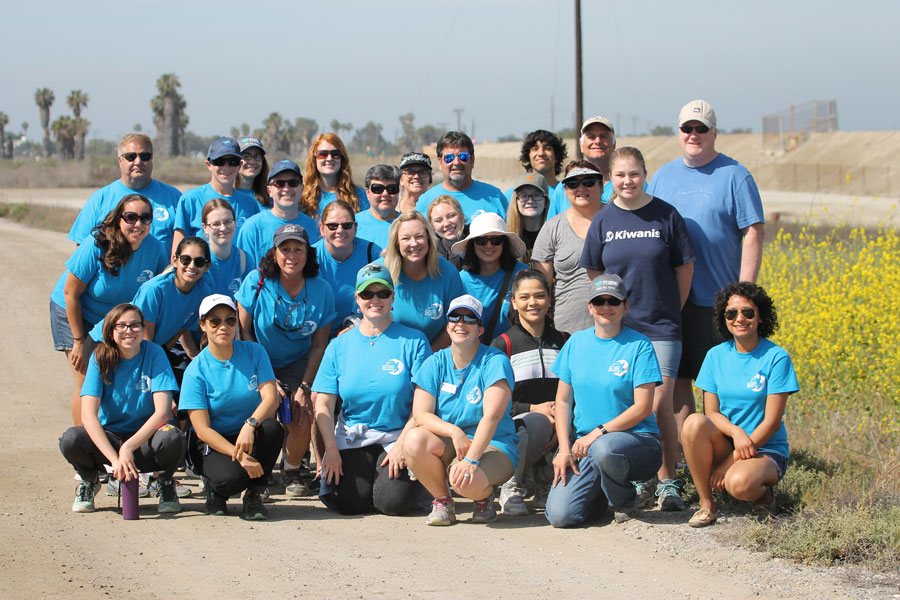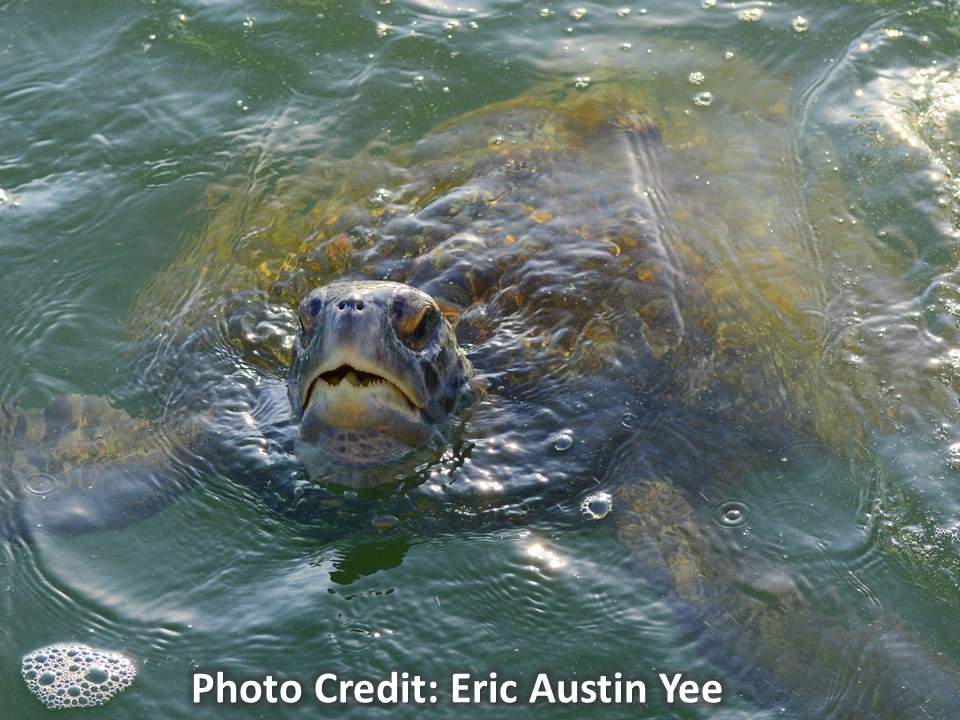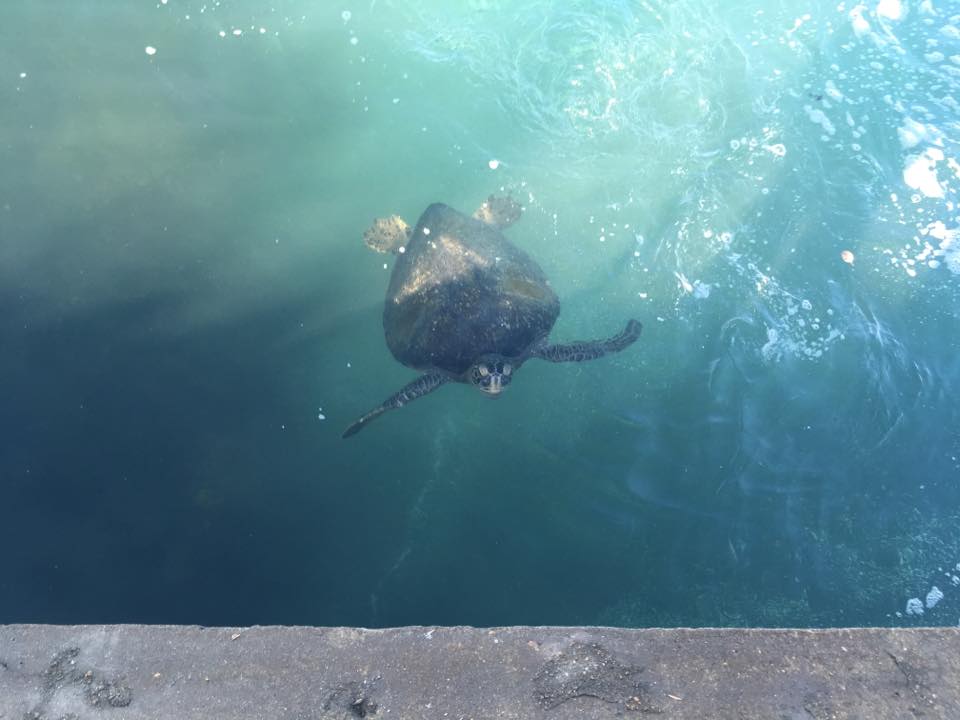
We are Setting the Standard in Animal Well-Being and Welfare
The Aquarium of the Pacific and its staff are deeply committed to leading the way in setting new standards in compassionate animal care.
Volunteer community scientists collect field data for a local Pacific green sea turtle population with the Aquarium of the Pacific’s Southern California Sea Turtle Monitoring Project.

In 2008, two Aquarium volunteers documented the year-round presence of green sea turtles in the San Gabriel River, establishing it as the northernmost known habitat for Pacific green sea turtles (Chelonia mydas). This launched a partnership between the Aquarium, the Los Cerritos Wetlands Authority, Tidal Influence, and NOAA Fisheries conservation and wildlife management groups to establish a community science program for long-term monitoring. Aquarium volunteers have contributed to over a decade of research, leading to the publication of a research paper, the first West Coast Sea Turtle Symposium, and a Photo ID program. Their data are used to understand how sea turtles interact in this area and to help with additional tracking, protection, and monitoring efforts.
All sea turtles are protected under state and federal law. Green sea turtles can grow up to 4 feet long, weigh up to 440 pounds, and live as long as eighty years. As herbivores, they primarily eat seagrasses, although juveniles may eat sea jellies and other invertebrates. You can help sea turtles and other local species by joining wetlands habitat restoration, reducing your carbon footprint, or by participating as volunteers with the Aquarium of the Pacific.



The Aquarium of the Pacific and its staff are deeply committed to leading the way in setting new standards in compassionate animal care.